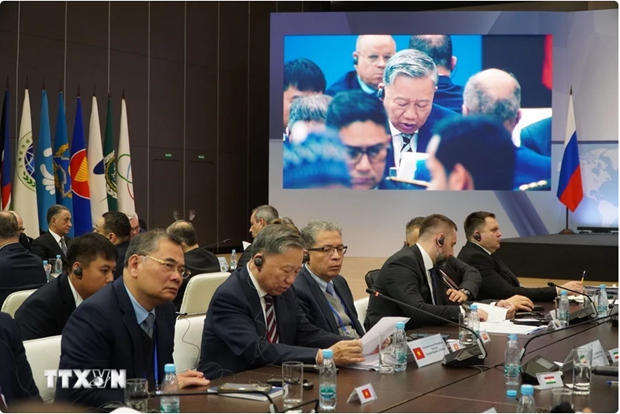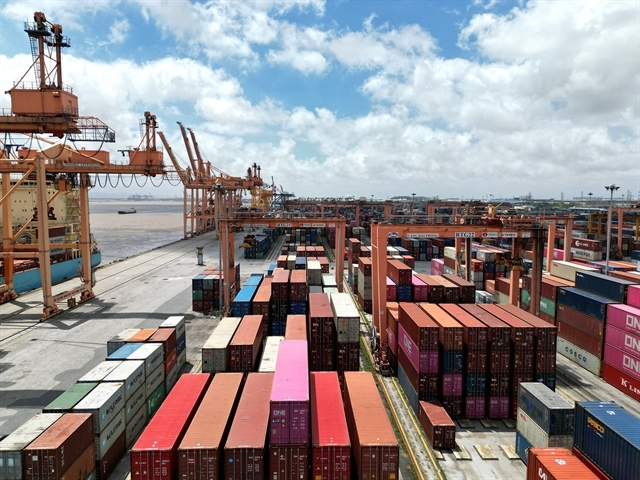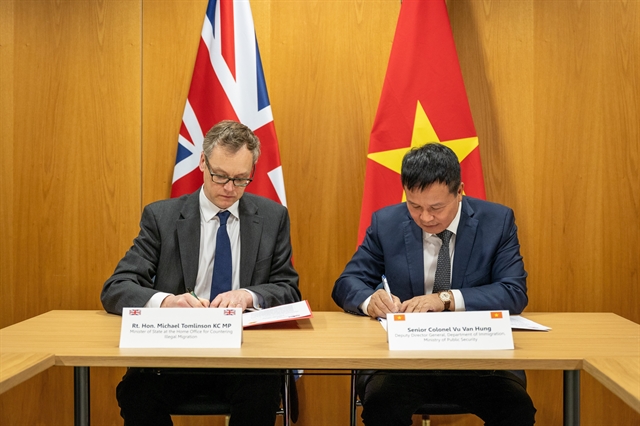 Society
Society

The monthly minimum wages for workers in enterprises for next year will increase by an average of 7.3 per cent.
 |
| Customers shop at a supermarket. The monthly minimum wage will increase by an average of 7.3 per cent next year. — Photo cafef.vn |
HÀ NỘI — The monthly minimum wage will increase by an average of 7.3 per cent next year.
Deputy Prime Minister Vương Đình Huệ agreed with the National Salary Council’s proposal to adjust the monthly minimum wage for next year, as part of a conference on salary policy reform, social insurance and policies for people with special contribution to the nation held in Hà Nội on Wednesday.
The minimum wage varies across the four zones, based on cost of living and location.
Under Huệ’s agreement, the monthly minimum wage for four zones will increase by from 7.1 per cent to 7.5 per cent. It means that the monthly minimum wage will up about VNĐ180,000-250,000 (US$8-11) per month depending on location.
Zone 1 covers urban Hà Nội and HCM City, zone 2 covers rural Hà Nội and HCM City along with urban Cần Thơ, Đà Nẵng and Hải Phòng cities, zone 3 applies to provincial cities and the districts of Bắc Ninh, Bắc Giang, Hải Dương and Vĩnh Phúc provinces, and Zone 4 takes care of the remaining localities.
Phạm Minh Huân, Deputy Minister of Labour, Invalids and Social Affairs, said that the minimum wage bump was met with the strongest consensus ever reached between the Việt Nam General Confederation of Labour (VGLC), which represents employees, and the Việt Nam Chamber of Commerce and Industry (VCCI), which represents employers.
Huân said that rate was adjusted to offset currency depreciation and would be based on current socio-economic conditions, including basic living costs for workers and their families.
The minimum wage increase would not only meet labourers’ basic living costs, but also ensure enterprise development, he said.
Huân also mentioned a difficulty: enterprises’ expenditures will increase sharply, because they not only must adjust monthly salary for their workers but also must increase their contribution to social insurance. At the present, total social insurance takes up 32.5 per cent of monthly salary, of which employers must pay 22 per cent.
Many employers have called that portion too high, and some have proposed that they should pay only 18 per cent.
Huân said that the National Salary Council will calculate and consider a reduction in employers social insurance payments.
Speaking at the conference, Deputy PM Vương Đình Huệ asked the Ministry of Labour, Invalids and Social Affairs (MoLISA) to collect recommendations and ideas from concerned ministries and enterprise associations about the wage increase and submit their findings to Prime Minister Nguyễn Xuân Phúc for approval within this month.
Huệ asked the MoLISA to continue monitoring the minimum wage’s effect on enterprises’ work and workers’ lives, striving to harmonise employers’ and employees’ rights.
The minimum wage increase took a long time to finalise because the VGLC and the VCCI at first failed to reach an agreement. — VNS









